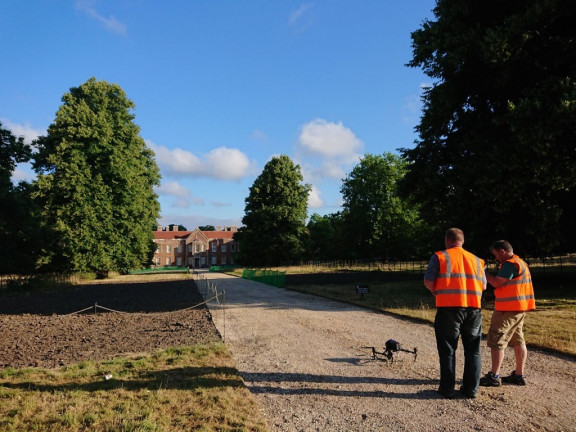
Hiring a Drone Pilot – What you Need to Know?
If you’re looking to hire a drone operator for the first time, it can feel a little confusing when you start to look into it.
As you read through articles online, you will see a lot of use of specialist terminology and acronyms and also mention of forthcoming changes in the law that can leave you wondering whether a UAV is the right (and legal) solution for you. So, here are the guidelines on drone usage straight form the horse’s mouth as it were.

Commercial Pilots Only
Drone pilots are divided into two categories
- Commercial Operators
- Amateur Flyers
If you are looking to hire a drone company to carry out work on your behalf, you need to use a commercial operator by law. Your friend who likes to fly drones as a hobby flyer isn’t legally allowed to use their drone for what is called ‘commercial gain’ so they can’t fly for money or other reward. To do so, would be breaking the law for them and you are potentially facing the safety risk of someone flying without the proper training.
How do I know who is a Legal Pilot?
Commercial UAV operators have to pass a series of theoretical and practical exams, complete a detailed Operations Manual laying out all of their procedures for safe working. They then apply to the CAA who inspect all this material and if they find it satisfactory then they will be granted a Permission for Commercial Operation (PfCO) which needs to be renewed annually.
So a commercial operator will be able to show you their PfCO and insurance certificates but if you want to check that they are valid, you can visit the CAA website to check for yourself. You will need to know the name that they are registered under as it could be their name or business name. It’s not rude to check, in fact we recommend it and it is an essential part of your due diligence!
http://publicapps.caa.co.uk/modalapplication.aspx?appid=11&mode=detail&id=7078
A quicker and simpler way to find a legal compliant drone operators is of course to use the Drone Safe Register where all our members are vetted for valid PfCO and insurance as before they can join.
Where can Drones Fly?
Once you’ve found a local drone operator who has experience in the kind of work you need, there’s the question of are they able to safely and legally complete the work. Of course, your pilot will be able to advise you, as that is part of their job but here’s some general information for you.
Drone operators (even once they’ve received their PfCO) are obligated to follow certain laws when they are flying: –
- They cannot fly higher than 400ft or 120 metres
- They must remain 50 metres away from persons, property, vessels and structures that are not under their control. Being under the control of the pilot means that you are aware of the flight, have been briefed on safety procedures and can be reasonably expected to follow them. During the take-off and landing phase, this distance is reduced to 30 metres.
- When there is a gathering of more than 1000 people, this safe distance increases to 150 metres away (or 50 metres during takeoff and landing)
- A drone pilot must have permission from the landowner at the take-off and landing zone.
- It is legal to fly over property at a height of a more than 50 metres, as things currently stand, no one owns the airspace as such. However, privacy and nuisance laws mean it is not legal to film a private property without the owner’s permission or disturb them from the ‘quiet enjoyment of their property’.
Some drone operators with special CAA permissions know as an OSC (operating safety case) will have the ability to fly at reduced distances and increased heights, so it is important to check the PfCO document and confirm that the flight they plan to do is permitted.
Drones and Flights Near Airports
Following recent legal changes to the law in January 2019, drones are not allowed to fly within 5km of an airport or airfield without first having permission to do so. This doesn’t mean that you are unable to hire a drone pilot to fly within this zone. It simply means that extra time will be needed whilst the necessary permissions are put into place.
Of course, this is a simplified explanation of how the legal framework stands as it relates to drones. It is always best to discuss what you would like to achieve with your local, legal drone pilot as each job needs careful desk research in order to examine all the details and to give you an accurate quote. This is the reason that we can’t talk more about guideline pricing on this blog, as each job does need to be costed on its own specific requirements. Each job will require the drone operator to review the legal requirements, research the specific location down to meters, assess the risk and document it carefully, choice of equipment to use, number of staff to deploy and of course the operators experience and expertise. All this must be considered carefully before an operator can quote an accurate price.
In saying that, it is still important to take a moment to reassure you that drone photography and videography can be extremely affordable option in many areas and your local DSR pilot will be able to help guide you through the process from start to finish.


